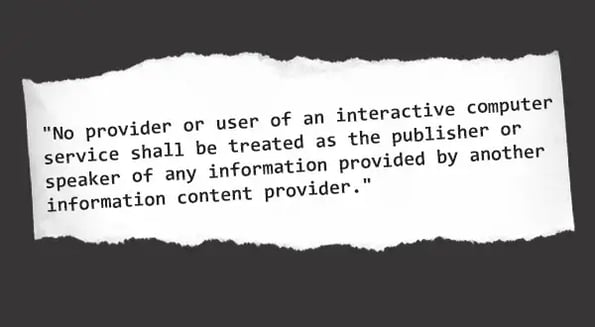It’s known as one of the foundational laws of the modern internet. And some powerful companies are trying to dismantle it.

The New York Times reports that IBM, Disney, and Marriott are taking aim at Section 230 of the Communications Decency Act of 1996.
So what is Section 230, anyway?
Section 230 makes it almost impossible to sue tech giants over the content their users post on their platforms.
Where did it come from?
Climb into the time machine to 1991. Bryan Adams ruled the airwaves, Terminator 2 was blowing up the box office, and dot-com companies were blazing trails in the Wild West of the consumer internet.
Early online service providers CompuServe and Prodigy got wrapped up in court cases that were responsible for Section 230’s rise.
Congress created it to encourage companies like them to keep 1 hand on the wheel — that is, to have at least some role in moderating what users post.
Why does 230 matter now?
Today, the law is regarded as a giant shield. It basically protects Facebook, Google, and others from being held responsible for what users do online.
Politicians on both sides of the aisle are calling for changes, so IBM and its allies see opportunity. They’re not all attacking 230 for the same reasons, though:
- Disney is worried about the spread of illegal activity overseas.
- Marriott wants to make it harder for Airbnb to fight hotel regulations.
Any changes could come with unintended consequences
Congress updated Section 230 in 2018 to crack down on websites that aid sex trafficking. But some activists say those changes only made life more dangerous for sex workers.
